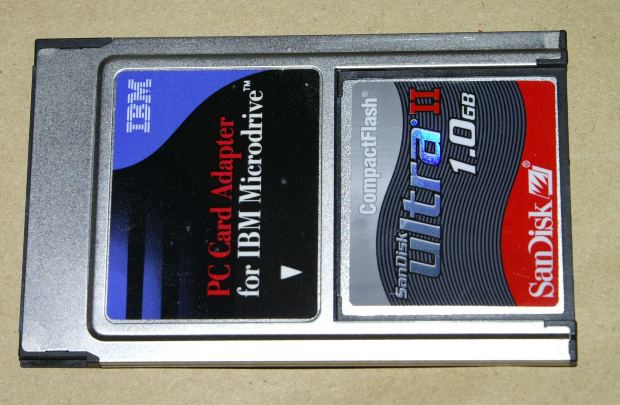With Entry to The Supply Code
페이지 정보
작성자 Bessie Weingart… 작성일 25-08-14 18:53 조회 50 댓글 0본문

 Memory errors have been first considered in the context of useful resource management (computing) and time-sharing systems, in an effort to avoid issues reminiscent of fork bombs. Developments had been principally theoretical until the Morris worm, which exploited a buffer overflow in fingerd. Randomization prevents most buffer overflow attacks and requires the attacker to use heap spraying or different software-dependent methods to acquire addresses, though its adoption has been slow. However, deployments of the know-how are sometimes restricted to randomizing libraries and the situation of the stack. In 2019, a Microsoft security engineer reported that 70% of all security vulnerabilities have been brought on by memory security issues. In 2020, a staff at Google similarly reported that 70% of all "extreme security bugs" in Chromium were brought on by memory safety issues. The pervasiveness and severity of vulnerabilities and exploits arising from memory security issues have led a number of safety researchers to explain figuring out memory security issues as "shooting fish in a barrel". Automatic memory administration in the form of rubbish assortment is the commonest approach for preventing some of the memory security problems, because it prevents common memory security errors like use-after-free for all data allocated throughout the language runtime.
Memory errors have been first considered in the context of useful resource management (computing) and time-sharing systems, in an effort to avoid issues reminiscent of fork bombs. Developments had been principally theoretical until the Morris worm, which exploited a buffer overflow in fingerd. Randomization prevents most buffer overflow attacks and requires the attacker to use heap spraying or different software-dependent methods to acquire addresses, though its adoption has been slow. However, deployments of the know-how are sometimes restricted to randomizing libraries and the situation of the stack. In 2019, a Microsoft security engineer reported that 70% of all security vulnerabilities have been brought on by memory security issues. In 2020, a staff at Google similarly reported that 70% of all "extreme security bugs" in Chromium were brought on by memory safety issues. The pervasiveness and severity of vulnerabilities and exploits arising from memory security issues have led a number of safety researchers to explain figuring out memory security issues as "shooting fish in a barrel". Automatic memory administration in the form of rubbish assortment is the commonest approach for preventing some of the memory security problems, because it prevents common memory security errors like use-after-free for all data allocated throughout the language runtime.
When mixed with computerized bounds checking on all array accesses and no help for raw pointer arithmetic, garbage collected languages present robust memory safety guarantees (although the guarantees could also be weaker for low-stage operations explicitly marked unsafe, such as use of a international perform interface). Nonetheless, the efficiency overhead of garbage collection makes these languages unsuitable for sure performance-critical applications. For languages that use handbook memory management, Memory Wave App safety will not be normally assured by the runtime. Instead, memory safety properties should both be guaranteed by the compiler by way of static program analysis and automatic theorem proving or carefully managed by the programmer at runtime. Allinea Distributed Debugging Device are special heap allocators that allocate objects in their own random digital memory page, allowing invalid reads and writes to be stopped and Memory Wave debugged at the precise instruction that causes them. Protection depends upon hardware memory protection and thus overhead is often not substantial, although it will possibly grow considerably if this system makes heavy use of allocation.
Randomization supplies solely probabilistic protection against memory errors, but can usually be easily carried out in present software by relinking the binary. The memcheck device of Valgrind uses an instruction set simulator and runs the compiled program in a memory-checking digital machine, providing guaranteed detection of a subset of runtime memory errors. With access to the source code, libraries exist that accumulate and monitor legitimate values for pointers ("metadata") and Memory Wave test each pointer access towards the metadata for validity, such because the Boehm rubbish collector. Generally, memory safety can be safely assured using tracing garbage assortment and the insertion of runtime checks on each memory access; this approach has overhead, but less than that of Valgrind. All rubbish-collected languages take this method. BoundWarden is a new spatial memory enforcement method that makes use of a mixture of compile-time transformation and runtime concurrent monitoring methods. Fuzz testing is nicely-suited for locating memory security bugs and is usually used in combination with dynamic checkers corresponding to AddressSanitizer.
Spatial Buffer overflow - out-of-sure writes can corrupt the content material of adjoining objects, or internal data (like bookkeeping info for the heap) or return addresses. Buffer over-read - out-of-sure reads can reveal sensitive information or assist attackers bypass handle space layout randomization. Use after free - dereferencing a dangling pointer storing the handle of an object that has been deleted. Double free - repeated calls to free may prematurely free a new object at the identical handle. If the exact handle has not been reused, different corruption might occur, especially in allocators that use free lists. Uninitialized variables - a variable that has not been assigned a value is used. It could include sensitive info or bits that are not legitimate for the type. Wild pointers arise when a pointer is used previous to initialization to some known state. They show the identical erratic behaviour as dangling pointers, although they're less likely to remain undetected.
Invalid free - passing an invalid address to free can corrupt the heap. Stack exhaustion - happens when a program runs out of stack space, typically because of too deep recursion. A guard web page sometimes halts the program, preventing memory corruption, however features with giant stack frames could bypass the web page, and kernel code may not have the advantage of guard pages. Heap exhaustion - the program tries to allocate extra memory than the quantity available. In some languages, this situation should be checked for manually after each allocation. Memory leak - Failing to return memory to the allocator could set the stage for heap exhaustion (above). Null pointer dereference - A null pointer dereference will typically trigger an exception or program termination in most environments, however could cause corruption in operating system kernels or methods with out memory protection or when use of the null pointer includes a big or negative offset. Some lists might also include race circumstances (concurrent reads/writes to shared memory) as being a part of memory security (e.g., for entry management).
- 이전글 Crypto casino Stake com loses $41 million to hot wallet hackers
- 다음글 Top 10 Private Jet Charter Companies: A Complete Overview
댓글목록 0
등록된 댓글이 없습니다.
